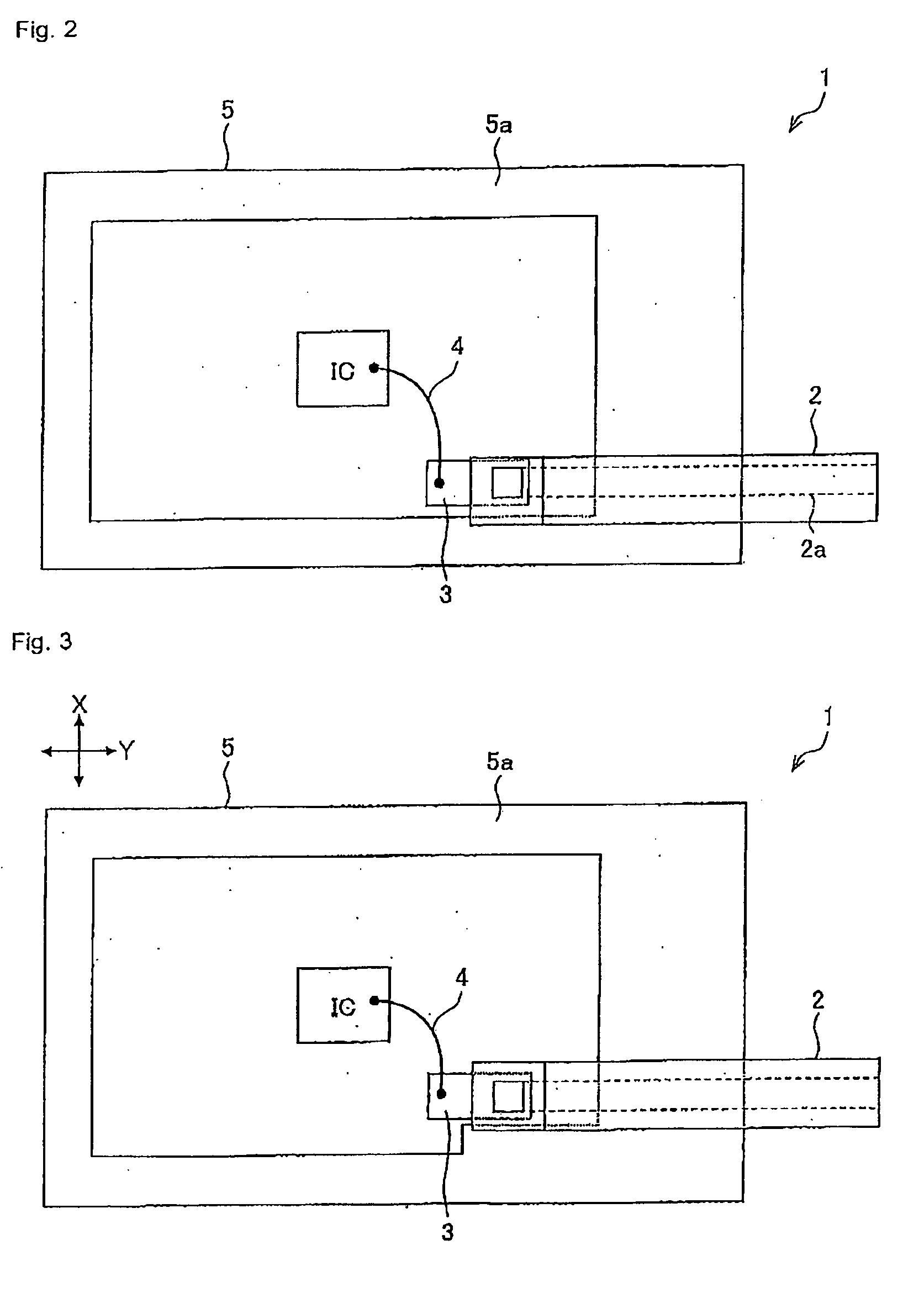Optical module
a technology of optical communication cable and optical element, applied in the field of optical communication cable module, can solve the problems of being susceptible to heat, unable to meet the requirements of low-height modules, and difficulty in achieving low-height modules, etc., to achieve satisfactory space-saving circuit design, maintain optical coupling efficiency, and improve the degree of freedom of wiring (wire) connecting the optical element and the ic
- Summary
- Abstract
- Description
- Claims
- Application Information
AI Technical Summary
Benefits of technology
Problems solved by technology
Method used
Image
Examples
Embodiment Construction
[0076]One embodiment of the present invention will be described below using FIG. 1 to FIG. 29.
[0077]FIG. 1 (a) is a plan view showing a schematic configuration of an optical module 1 according to the present embodiment, FIG. 1 (b) is an enlarged view of an end of an optical waveguide 2, and FIG. 1 (c) is a side view showing a schematic configuration of the optical module 1.
[0078]The optical module 1 includes the optical waveguide 2, a light receiving / emitting element (optical element) 3, a bonding wire 4, and a package 5.
[0079]The optical waveguide 2 is configured by a core part 2a having a large index of refraction and a clad part 2b having a small index of refraction arranged contacting the periphery of the core part 2a, and is made to propagate an optical signal entered to the core part 2a while repeating total reflection at the boundary of the core part 2a and the clad part 2b. The optical waveguide 2 has flexibility since the core part 2a and the clad part 2b are made of polyme...
PUM
 Login to View More
Login to View More Abstract
Description
Claims
Application Information
 Login to View More
Login to View More - R&D
- Intellectual Property
- Life Sciences
- Materials
- Tech Scout
- Unparalleled Data Quality
- Higher Quality Content
- 60% Fewer Hallucinations
Browse by: Latest US Patents, China's latest patents, Technical Efficacy Thesaurus, Application Domain, Technology Topic, Popular Technical Reports.
© 2025 PatSnap. All rights reserved.Legal|Privacy policy|Modern Slavery Act Transparency Statement|Sitemap|About US| Contact US: help@patsnap.com



